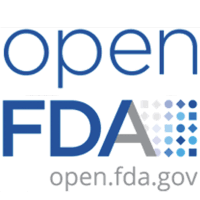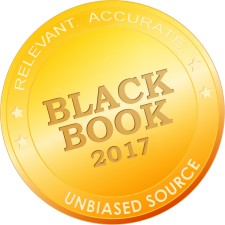data mining
See the following -
5 Civic Projects Aim To Make Data Useful
How can we use data to improve our lives, our communities, and the world at large? At the recent Microsoft Design Expo, students from eight universities showcased design projects along the theme of “making data useful.” Read More »
- Login to post comments
Analysis: Government’s Vast Lockers Of Data Threaten Basic Individual Freedoms
I’m going to try to tie together strands of information NSA-style and see if a pattern emerges. I will be looking for signs that America’s historic definition and understanding of privacy are being eroded. I will also try to understand if that erosion could fundamentally alter an individual American’s relationship to government power. Read More »
- Login to post comments
Black Duck Forms Security Advisory Board, Adds Research and Data-Mining Group
 Black Duck...today announced strategic initiatives to add security expertise and strengthen its research and innovation capabilities. The company has created a five-member Security Advisory Board comprising experienced security executives, and has launched Black Duck Research, a Vancouver-based, applied-research group focused on data mining, machine learning, natural language processing, big data management and analytics, and software quality...
Black Duck...today announced strategic initiatives to add security expertise and strengthen its research and innovation capabilities. The company has created a five-member Security Advisory Board comprising experienced security executives, and has launched Black Duck Research, a Vancouver-based, applied-research group focused on data mining, machine learning, natural language processing, big data management and analytics, and software quality...
- Login to post comments
Data miners strike gold on copyright
In a significant victory for data miners, the open access publisher BioMed Central is to waive all copyright over datasets it publishes. Read More »
- Login to post comments
Demystifying The Government's Fraud And Abuse Tools For Healthcare
The U.S. Government increasingly uses statistical analysis and data mining to identify fraud and abuse in the healthcare market. A key tool in the government’s arsenal is RAT-STATS software, used to sample and quantify improper claims, which then become the basis for damages and monetary penalties... Read More »
- Login to post comments
Does Gum Disease Have a Link to Cancer, Dementia, Stroke?
Open wide. There’s a host of researchers peering inside your mouth, and you may be surprised at what they hope to find. They’re looking for a connection between gum disease and illnesses such as breast cancer and even dementia. What they’re seeing in there is intriguing: possible relationships between gum or periodontal disease and diabetes, heart disease, stroke and at-risk pregnancies. Some studies have been pursuing an association between bleeding gums and pancreatic cancer. Others are looking at whether there’s a connection between mouth bacteria and Alzheimer’s...
- Login to post comments
Don’t Listen To Google And Facebook: The Public-Private Surveillance Partnership Is Still Going Strong
If you’ve been reading the news recently, you might think that corporate America is doing its best to thwart NSA surveillance. Google just announced that it is encrypting Gmail when you access it from your computer or phone, and between data centers.
- Login to post comments
Ex-Government Official: The Private Sector Is Threatening Your Privacy
Are data-mining companies and social-media platforms scarier than the government? Read More »
- Login to post comments
FASTR Aims To Speed Open Access To Government-Funded Research
[...] If passed, FASTR would require government agencies with annual extramural research expenditures of more than $100 million make electronic manuscripts of peer-reviewed journal articles based on their research freely available on the Internet within six months of publication in a peer-reviewed journal. Read More »
- Login to post comments
FDA Issues RFQ for Large Scale EHR Study - Wants to Leverage VA's Open Source VistA EHR and Database for Research
 The Food and Drug Administration (FDA) yesterday issued a Request for Quotation (RFQ) for a large-scale electronic health record (EHR) system. This RFQ is very important as the objective is to develop a platform to support a critical project by the FDA's Division of Bioinformatics and Biostatistics (DBB) "to conduct research to assess the safety and surveillance of FDA regulated products through the FDA adverse event reporting systems..." Adverse drug reactions are one of the leading causes of death in the US, thus finding which drugs cause negative interactions is of vital importance. The project requires "use of the large electronic medical record (EMR) system..." The project is going to leverage the largest, most comprehensive, and clinically relevant medical records database, that of the US Department of Veterans Affairs (VA).
The Food and Drug Administration (FDA) yesterday issued a Request for Quotation (RFQ) for a large-scale electronic health record (EHR) system. This RFQ is very important as the objective is to develop a platform to support a critical project by the FDA's Division of Bioinformatics and Biostatistics (DBB) "to conduct research to assess the safety and surveillance of FDA regulated products through the FDA adverse event reporting systems..." Adverse drug reactions are one of the leading causes of death in the US, thus finding which drugs cause negative interactions is of vital importance. The project requires "use of the large electronic medical record (EMR) system..." The project is going to leverage the largest, most comprehensive, and clinically relevant medical records database, that of the US Department of Veterans Affairs (VA).
- The Future Is Open
- Login to post comments
FDA Seeks Data Mining Tool to Track Adverse Drug Reactions
The Food and Drug Administration is in the market for a data mining tool that will gather information on adverse reactions to vaccines and other drugs, according to solicitation documents posted Monday. Read More »
- Login to post comments
First-Ever Crowdsourced Prostate Cancer Data-Mining Competition Discovery Impacts and Predicts Patient Survival
 Today, a breakthrough report in the international journal Lancet Oncology demonstrates how a collaborative effort to analyze broadly accessible clinical data led to novel insights and improvements in cancer treatment and management. Participants in the Prostate Cancer DREAM (Dialogue for Reverse Engineering Assessments and Methods) Challenge – an effort initiated by Project Data Sphere, LLC (PDS) in collaboration with Sage Bionetworks using proven DREAM methodology – developed new risk factor models for metastatic castration-resistant prostate cancer (mCRPC)...
Today, a breakthrough report in the international journal Lancet Oncology demonstrates how a collaborative effort to analyze broadly accessible clinical data led to novel insights and improvements in cancer treatment and management. Participants in the Prostate Cancer DREAM (Dialogue for Reverse Engineering Assessments and Methods) Challenge – an effort initiated by Project Data Sphere, LLC (PDS) in collaboration with Sage Bionetworks using proven DREAM methodology – developed new risk factor models for metastatic castration-resistant prostate cancer (mCRPC)...
- Login to post comments
Four Things We Can Do Now to Unlock the Cure for Cancer
 As a community we are capable of working together to achieve greater things. If we marshal our resources to work together, I believe we can unlock the cure for cancer. This is a rare opportunity. We need to change the models and shift our culture towards collaboration. We can’t just tweak around the edges — patients and their families can’t afford to wait. An alternative system, where all publicly-funded research and data are required to be shared would allow authors to unlock their content and data for re-use with a global audience, and co-operate towards new discoveries and analysis.
As a community we are capable of working together to achieve greater things. If we marshal our resources to work together, I believe we can unlock the cure for cancer. This is a rare opportunity. We need to change the models and shift our culture towards collaboration. We can’t just tweak around the edges — patients and their families can’t afford to wait. An alternative system, where all publicly-funded research and data are required to be shared would allow authors to unlock their content and data for re-use with a global audience, and co-operate towards new discoveries and analysis.
- Login to post comments
Hospitals Remain Underinvested in Costing Technologies, Black Book ERP Survey Results
 An inert healthcare enterprise resource planning software sector grew less than 2 percent in 2015 as hospitals turned available technology funding to conflicting priorities such as ICD 10 conversions, cybersecurity, population health and analytics, with less than 29 percent of all US hospitals having implemented any ERP product. As provider executives face compounding value-based risk decisions, recent interest in ERP has climbed sharply according to a recent Black Book survey of 1,158 health system procurement and technology leaders in the fourth quarter of 2016....
An inert healthcare enterprise resource planning software sector grew less than 2 percent in 2015 as hospitals turned available technology funding to conflicting priorities such as ICD 10 conversions, cybersecurity, population health and analytics, with less than 29 percent of all US hospitals having implemented any ERP product. As provider executives face compounding value-based risk decisions, recent interest in ERP has climbed sharply according to a recent Black Book survey of 1,158 health system procurement and technology leaders in the fourth quarter of 2016....
- Login to post comments
How Accumulo Safeguards Your Civil Liberties
It’s been widely reported that the NSA is in the midst of collecting huge volumes of call metadata from Verizon associated with all domestic and international calls made by the company’s customers for three months [...]. Less attention has been paid to what exactly the government does with all that data or the technology supporting it. Read More »
- Login to post comments